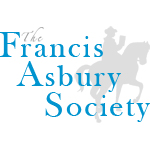Scripture reading: Matthew 3:16–17
The Three-Person’d God
The grace of the Lord Jesus Christ and the love of God and the
fellowship of the Holy Spirit be with you all. (II Corinthians 13:14)
Trinity Sunday, the first Sunday after Pentecost, calls the faithful to think deeply about the nature of the tri-personed God we worship. Though the tri-unity of God will in one sense always remain a mystery beyond all human ability to fathom or explain, in another sense it is the logical expression of three essential truths clearly taught in the Bible.
1. God is three persons. The idea that God is a community of “three Persons” is not the result of human thought or someone’s creative imagination. Rather, it is the culmination of centuries of reflection on sacred Scripture and the manner in which God has revealed himself through history. In the Bible we learn that the Father is not the Son, nor is the Son the Spirit. Each one is distinct from the other and yet intimately connected. Further, each one has traits and characteristics that only persons have (talking, feeling, thinking, etc.).
2. Each person is fully God. As we read and study the Scriptures, not only do we learn that three distinct persons make up the God we worship, we also learn that each of these persons is fully God! The Son is not part God and part man. He is fully God and fully man. Likewise the Spirit and the Father are full and complete expressions of God.
If our understanding stopped here, we would have to conclude that what we call “God” is a plurality of beings. One being is the Father, one is the Son and another is the Spirit. Such a belief system would properly be called polytheism—or to be more precise, tritheism. In fact, this is what many uninformed persons assume about Christianity. They believe we worship three “Gods.” It is the third point that brings the Christian doctrine of the Trinity into dramatic focus.
3. There is one God. Scripture is fierce and dogmatic in its constant assertion that there is one, and only one, God. The three persons, though distinct, intermingle and co-inhere with one another. Not only are they one in purpose and harmonious in will, they all share the same essential being and have done so throughout all eternity. In other words, there is one God (not three) eternally existent in three Persons.
The historic stream of orthodox truth, whether Protestant, Roman Catholic or Eastern Orthodox, has been defined by rigid adherence to understanding God in these Trinitarian terms. Nearly all heresies have been the result of someone’s inability (or refusal) to live with the tension created when these three affirmations are simultaneously held.
But doctrinal explanations can only take us so far. When we reach the point where we can no longer understand the theology, we are invited to humbly worship the mystery!
Holy, holy, holy! Lord God Almighty!
All thy works shall praise thy name, in earth and sky and sea;
Holy, holy, holy! Merciful and mighty!
God in three persons, blessed trinity! (Reginald Heber, 1826)
We worship one God in trinity and trinity in unity; neither confounding the persons nor dividing the essence . . . The Godhead of the Father, of the Son, and of the Holy Spirit is all one; the glory equal, the majesty co-eternal. —Athanasian Creed
point to ponder • Prayer is offered to the Father, through the Son, in the power of the Holy Spirit.
prayer focus • The many throughout the world who intensely desire to worship the God of the Bible but are confused and hindered by their lack of basic understanding regarding the Trinity.
